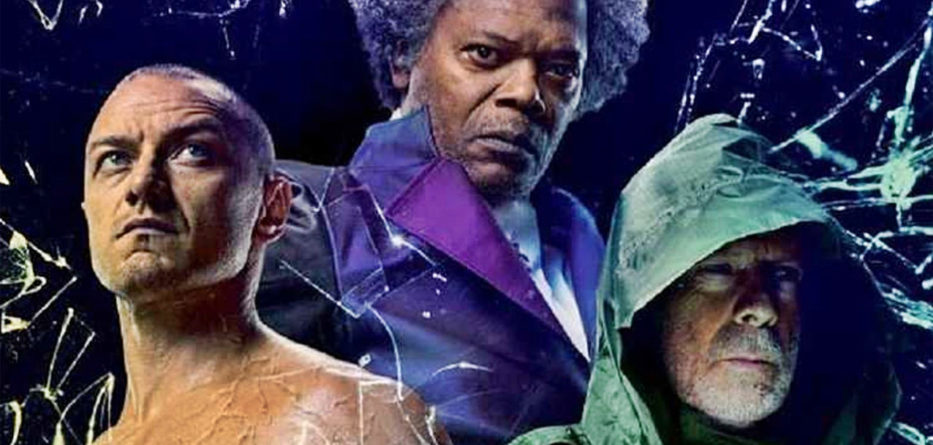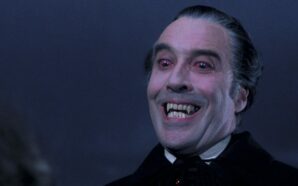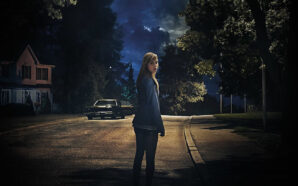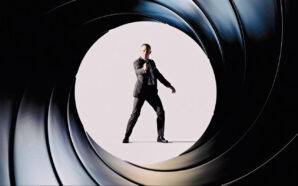Guest writer Dan Pullinger brings us his review of M. Night Shyamalan’s new film Glass.
Glass is the closing chapter in M. Night Shyamalan’s super hero trilogy, which he has dubbed the “Eastrail 117 trilogy” in reference to the events that kick-started Unbreakable. A closing chapter almost two decades in the making.
Unbreakable was a thought provoking psychological thriller looking, determined to take a much more down to earth view on Superheroes.
Split, the stealth follow up, was a far less ponderous affair and took on more of a horror approach but still managed to offer up the same level of character study.
Not long after the reveal that Split was indeed a sequel to Unbreakable, Glass was announced as M. Night’s next film. Charged with marrying the two films styles and bringing them together to create a cohesive resolution for all involved. Unfortunately, this is not the case. As a result Glass is a very tonally confused tale.
The film starts off strong and seeing Bruce Willis back as David Dunn is extremely satisfying. In the 19 years since Unbreakable, David, with the help of his son Joseph, has been fighting low level crime on the streets of Philadelphia testing out his powers and senses. It does seem a little off that he is still seemingly in the early stages of his crime fighting days, considering how long it’s been since we last saw David.
His superhero endeavours have led him to search for The Horde, played once again by James McAvoy; The Horde, real name Kevin Crumb, is once again kidnapping girls and offering them up to The Beast. During their first scuffle, in act one, the pair of them are caught and taken to a psychiatric facility, a strangely character specific, colour coded facility. Coincidentally this facility just so happens to house Samuel L Jackson’s Elijah Glass. It is here where the film starts to grind to a halt.
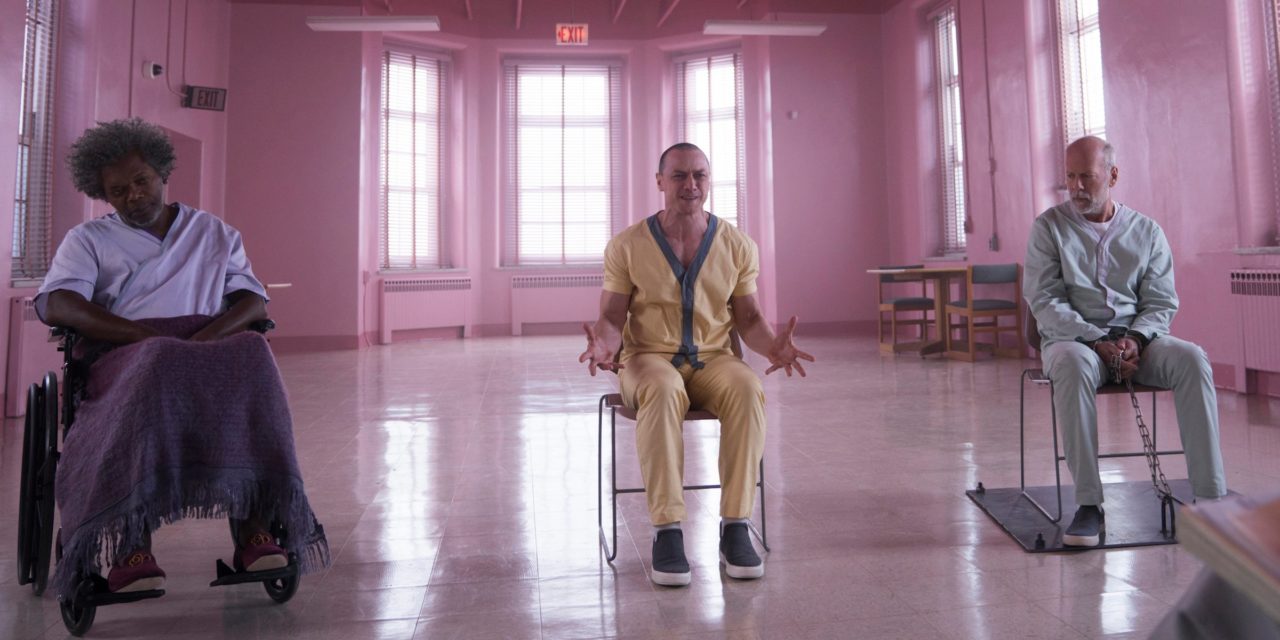
All nice and colour coded, in case you needed to know who was bad, who was good and who was somewhere in between
Where the first act clipped along a relatively brisk pace the second and third acts slow the film to a painful crawl. Glass is first and foremost an Unbreakable sequel, and while in the facility the methodical character study style storytelling of that film comes into play. The problem, we’ve already been introduced to these characters in their respective films. In order for the three main players to meet each other there are a handful of contrivances and logic gaps, which only serve to undermine the film and make a great deal of it feel very underdeveloped.
Every now and then we are reminded that it is also a Split sequel and a side plot involving Casey Cooke, the girl The Horde lets go at the end of Split. For almost no reason, nothing that happens between Cooke and The Horde has any bearing on the plot at large, nor does it serve any character growth.
Trying to convince the three of them that they are not special but all share a disorder giving them delusions of grandeur is Dr Ellie Staple. It is a shame that this avenue is not really looked at beyond surface level comments about what might really be going on to each of them, something which could have been a real driving force for the film ends up falling flat and feeling very lacklustre.
Like Unbreakable, Glass embraces the meta-criticism you’d expect to come from Mr Glass, with some genuinely funny pot shots at a certain cinematic universe. But there is unfortunately too much of a reliance on Glass’ obsession with comics and superheroes. All too often does a plot point crop up after the line “in the comics this is where…” which means that the film falls into the clichés that it pokes fun at. Clichés and pitfalls Unbreakable was very careful to avoid.
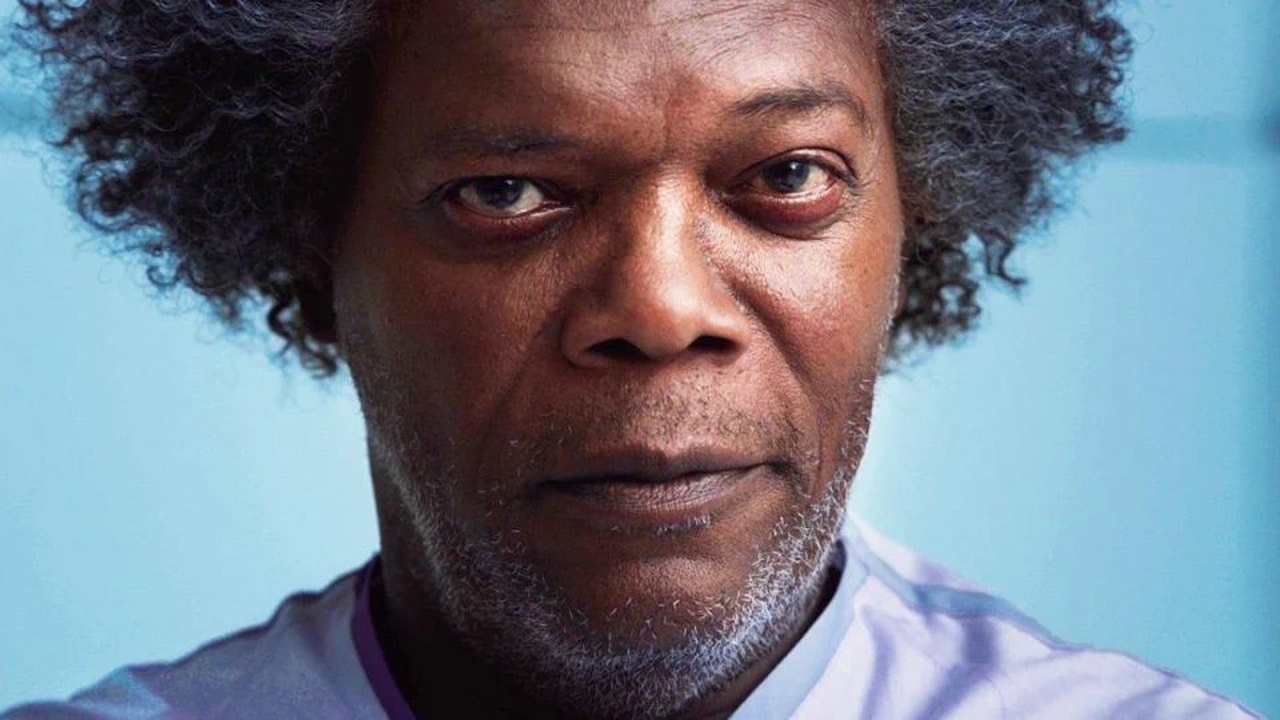
The third act, in true M. Night fashion, is where the big twist is revealed, and it’s extremely unsatisfying. It feels half baked, and so far out of left field; the beginnings of a big idea but with no anchor to tie it cohesively to anything that’s happened throughout out the film’s run-time.
Adding to the disjointed feel of the film is the fact that each act focuses on a different one of the trio. Act one has Dunn at the centre, act two The Horde and act three is Mr Glass’. All different in pace and tone, each feeling like part of their own film, it’s very distracting and takes you out of the experience.
Glass is a confused patchwork of ideas with hints of greatness, but ultimately, an unsatisfying conclusion to both Unbreakable and Split.
My name’s Dan, I sometimes…scratch that…always like to think of myself as a professional writer, just y’know, one that’s not paid. I’m a film graduate and proud to say I’m only pretentious when drunk and rambling about how David Lynch’s Eraserhead could change the world, other than that I’m probably quite tolerable. I’m a gamer too of course, predominantly single-player, I like to get stuck in and explore their worlds and stories as an escape; and I will unquestionably become over excited for anything Hideo Kojima makes.




